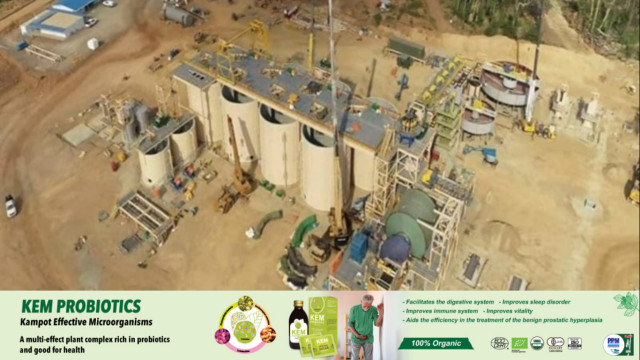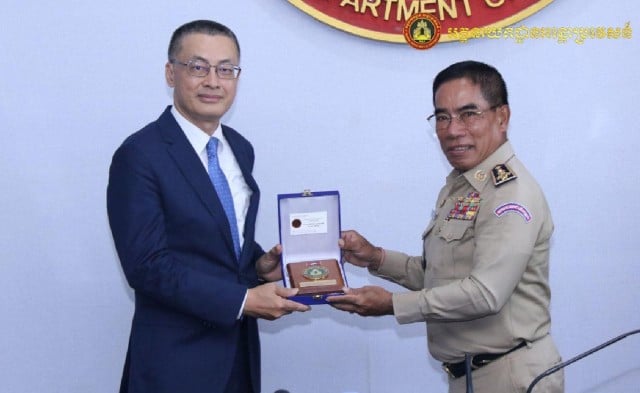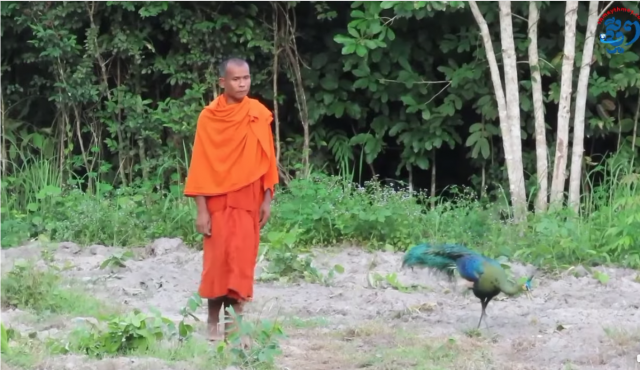Gold Mining Reporting Must Be More Open: NGOs

- By Lay Sopheavotey
- December 22, 2023 6:09 PM
PHNOM PENH – Civil society groups have called for more openness about the gold mining industry to ensure transparency.
On Dec. 20, the Fair Finance Coalition, the NGO Forum on Cambodia (NGOF), and Oxfam in Cambodia issued studies on gold mining businesses at six locations in Preah Vihear, Ratanakiri and Mondulkiri provinces.
The findings suggest that transparency on Environmental, Social, and Governance (ESG) practice in the industry remains low.
The 86-page report says Renaissance Minerals (Cambodia) Limited (RNS), Angkor Gold and Mesco Gold companies, which are at a primary mining level and are highly industrialized, have been practicing ESG reporting “quite well”.
However, the Rong Cheng, Xinshan, and Delcom companies have implemented the policy to a small degree or have been suspected of violating the ESG, the report says.
In 2021, the International Finance Corporation set out a principle for companies and investors to consider and pay high attention to the ESG practice when operating their investment related to risk factors and effects on environment, society, and governance.
Before operating, companies must follow the requirements set by the Ministry of Environment and the Ministry of Mines and Energy, such as an Environmental and Social Impact Assessment (ESIA) and a mining license to show high responsibility and activeness.
Some companies, however, have been not open with information after getting their license.
“The finding shows that the transparency reporting on the ESG practice and gold mining industry in Cambodia is at a low degree. The information about the gold mining industry is not available for the public, nor through requests,” the report says.
“Despite the extractive industry development, there is still a limited accessible information for the Cambodians. Simply speaking, the existing regulation system and administrative structure cannot make or spread the types and amount of news that is needed to ensure the industry transparency.”
The report says Rong Cheng, Delcom, and Xinshan companies got involved in unsolvable disputes with local people. Moreover, there was a restriction on their rights to enter or exit, and to use the resources in their traditional locations.
Mining companies related to or managed by Chinese investors seemed to be hesitant in keeping in line with national and international standards.
“The financial capital of Chinese companies operating in Cambodia remain unknown and difficult to trace. It caused a loss of sensitive information, and the financial funding of Chinese companies can be concluded to have been from Cambodian nationals and Chinese investors who are the shareholders,” the organizations said.
The organizations urge the government to strictly uphold the Environment Management Plan (EMP) and update their own ESG reporting on their websites or through any communication means, making it convenient for retrieval.
The civil society groups also called on the Ministry of Environment and the Ministry of Mines and Energy to continue strengthening the license issuance and approval on the Environment and Social Assessment report for gold mining projects.
They suggest the Ministry of Mines and Energy creates a foundation for data such as the company’s history, the management report, their mining license status, the Environmental and Social Assessment, inspection report, approval report, and finance report.
The organizations also asked the ministry to update and share information about mine funding with other actors on their website, or issue announcements at a set time on fundraising from gold mining corporations and expenditure status.
Cambodianess did not get a comment from Ung Dipola, the spokesperson and the director-general of the General Department of Mineral Resources at the Ministry of Mines and Energy, by press time.
Originally written in Khmer for ThmeyThmey, this story was translated by Meng Seavmey for Cambodianess.















